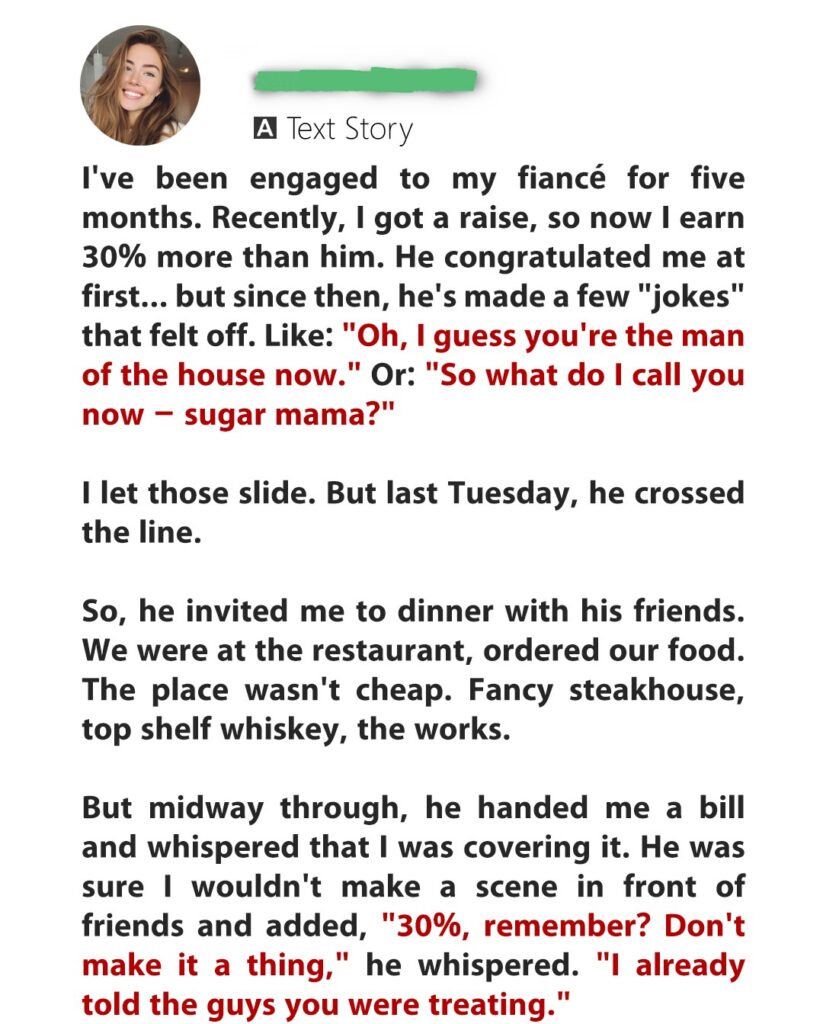When Katie finally earned the promotion she’d fought for—Senior Marketing Strategist—it felt like a triumph over years of silent overtime and overlooked ideas. She celebrated quietly, texting her fiancé Mark the good news. His reply? “Guess that means you’re picking up the tab now! 30% club, baby!”
At first, Katie laughed it off. But the jokes kept coming. “Sugar mama,” he’d tease. “You got it, right?” he’d say when bills came due. Slowly, the humor turned into expectation.
Then came the dinner. Mark invited Katie to join his college friends—loud, indulgent men who barely remembered her name. At the upscale steakhouse, they ordered oysters, wagyu sliders, cocktails. Katie kept it modest: grilled chicken, salad, one glass of wine.
Midway through the meal, Mark leaned in and whispered, “You got this, right? Thirty percent, remember?” She froze. He’d already told the group she was treating. Her raise had become a weapon—used not to celebrate her success, but to shift responsibility.
Katie smiled sweetly, excused herself to the bathroom—and walked out the front door.
Her phone buzzed nonstop. “Are you serious right now?” “The car is gone!” She didn’t respond until she was home. “You never asked, Mark. You decided. And you used my raise to humiliate me.”

When he stormed in later, furious, she met his rage with calm. “Yes,” she said. “I left.” No apology came. Just blame.
Katie realized then: love without respect is just control dressed as charm. Her raise didn’t change her—it revealed him.


